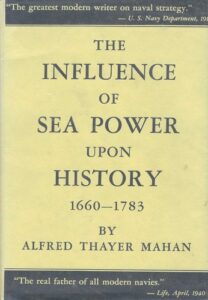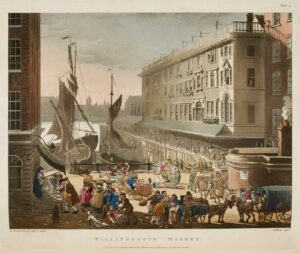Evan Connery Discussion Question Further Research
I decided to do some further research into the question of why France and England did not struggle with debt as they modernized, while the Ottomans did. I found that through lending from other powers and managing deficits through mercantilism and colonization, Britain and to a lesser degree France were able to maintain financial stability.
In this period France and Britain often looked to Amsterdam to loan money due to its financial strength. This strength came as a result of the centralized and reliable banking system present in the Netherlands (Kennedy, 78). Furthermore, the Netherlands had a lot of available capital because it did not engage in military buildup or colonization and was willing to lend due to its neutrality (Kennedy, 103).
One may be asking themselves “If the Netherlands was the primary lender for the great powers at this time, why did it not also rise to power”. Unfortunately, the Netherlands was surrounded by powerful countries leading them to take the strategy of neutrality to maintain security (Kennedy, 122). As a result, they lacked the military means to collect debts from states that did not pay back their loans (Kennedy, 123). Overall,

Naval power was key to the rise of Britian and France. Power on the seas is what led the British to dominate the world in the late 1700s.
this illustrates that wealth doesn’t equal power in the international system, this was also illustrated by the rise of Russia in this period. Russia was very weak economically, but due to its size and geopolitical position, it was able to emerge as a world power (Kennedy, 86).
At this time, there were no means for measuring credit, however, countries provided much higher interest rates for France as compared to Britain. This was because they were unsure if France would pay back their loans. This uncertainty came due to domestic issues as a result of the lack of centralization of French finances (Kennedy, 85). France also had high taxes which angered citizens and led to the early beginnings of the French Revolution, and foreign powers began doubting the stability of the French government (Kennedy 120). Lastly, French tax and debt collectors were tasked with extracting money from citizens, and they often took a large percentage of this money before they gave the revenue to the French government (Kennedy, 83).
On the other hand, Britain had lower taxes which allowed citizens to be more willing to finance the government in uncertain times, especially during the Seven Years’ War. At this time wars were often about who could finance the effort. longest. Due to Britain’s strong financial system, it was able to win the 7 World Wars, removing French and Spanish influence from the majority of North America. This area will soon prove to be key to Britain’s rise to power and its colonial system. Next, Britain had a strong central bank and was able to better regulate its finances, leading to further confidence in Britain’s ability to pay back loans (Kennedy, 84). The low interest rates allowed Britain to loan more money and therefore led to their rise as a global hegemon. This in turn allowed them to continue to finance military buildup and the beginnings of colonization. As a result, this created a cycle of British financial gain and growth (Kennedy, 84).

British port city in the 1800s.
Next, mercantilism allowed both France and Britain to reduce their deficits. Mercantilism is not free trade because it seeks to limit trade deficits. This allowed both Britain and France to ensure they did not fall too deep into debt and could maintain relatively low-interest rates (Kennedy, 97) It is key to note that the French would eventually fall from power due to their inability to manage their debt, leading to a lack of ability to provide for their citizens, in turn leading to the French Revolution (Kennedy, 121). Unfortunately, the Ottomans took a different strategy, engaging in free trade. This led them to run deficits at times leading to greater debt. Furthermore, the government slowed the trade of certain goods. This government intervention slowed Ottoman economic growth (Pamuk, 238)
The growth of colonization led to the rise of mercantilism. Colonization was promoted through the desire to extract raw materials and gain access to new colonies (Kennedy, 96). This allowed the French and British to gain wealth through trade and greater access to raw materials needed for production. While I originally thought cross-sea trade would be expensive and inefficient, a large emphasis was put on naval growth and shipbuilding in this period (Kennedy, 97). This allowed for more efficient trade. The majority of raw materials needed to build these ships were cheaply imported from colonies, once again creating a cycle of cheap materials leading to production and production leading to wealth allowing for more colonization and raw materials (Kennedy, 96-97). Unfortunately, the Ottomans failed to capitalize on potential gains that they could have made through colonization due to not creating permanent settlements in areas they had influence (Pamuk, 235).
Pamuk, Şevket. “Institutional Change and the Longevity of the Ottoman Empire, 1500-1800.” The Journal of Interdisciplinary History 35, no. 2 (2004): 225–47.
Kennedy, Paul M. The Rise and Fall of the Great Powers. New York, NY: Random House, 1988.
Images
The influence of sea power upon history, 1660-1783. by Alfred Thayer Mahan | Open Library
The rise of cities in the 18th century | The British Library